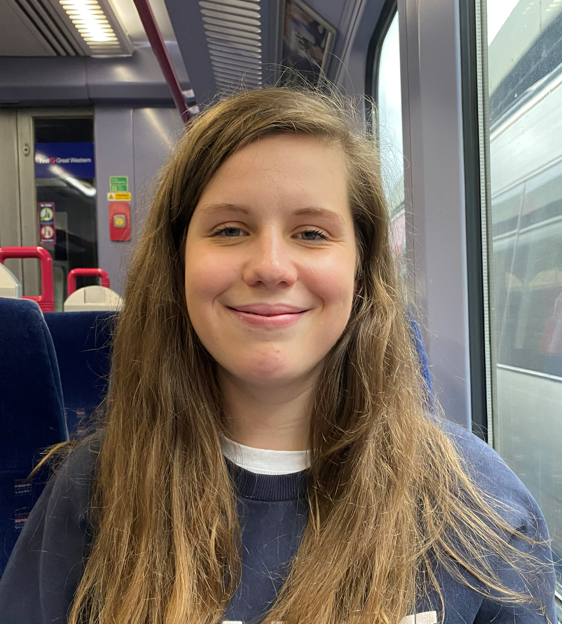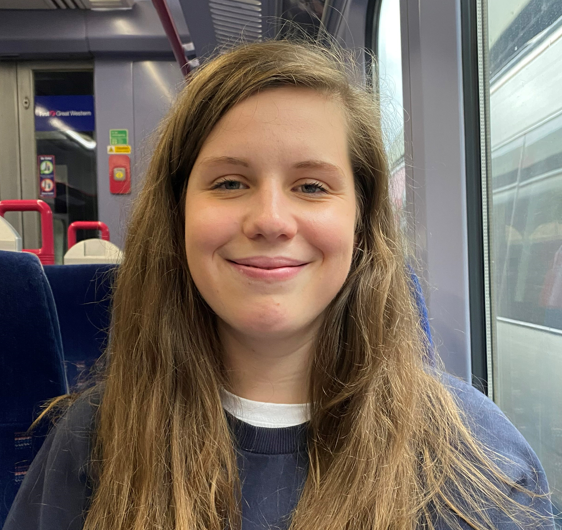By Laura Callard
Each year CGHP offers ethical elective placements for medical students within a CGHP health partnership.
Laura joined CGHP as an intern earlier in the year. Laura holds a master’s degree in Global Health with Conflict Security and Development from Kings College London. Whilst completing this degree Laura was part of the Fundraising and Programs team for the charity Street Child, having previously worked for Street Child in Kampala for 3 months, focusing on education and health. More recently Laura has volunteered in informal refugee camps in Calais and has a research background in refugee healthcare and disease.

“What has caused this? Was it something I fed her? …” A parent asking one of the recipients of the student bursary why their child has cancer, at the Uganda Cancer Institute.
Background
Each year CGHP offers ethical elective placements for medical students within a CGHP health partnership. This offers an incredible learning experience.
Two students joined the Kampala Cambridge Cancer Collaboration to work in the children’s cancer wards at the Uganda Cancer Institute (UCI) in Kampala within the Kampala Cambridge Cancer Collaboration. UCI is a national tertiary cancer referral hospital. All children diagnosed with cancer in Uganda are treated at UCI or a linked regional satellite centre.
Two students travelled to Gaborone, Botswana, one focusing on digitalising data collected on patients presenting to a clinic with tuberculosis (TB), the other creating a questionnaire aimed at childbearing women discussing contraceptive choices as well as general health.
UCI Partnership
The focus of the student’s ethical elective was to work in line with partnership objectives to create information booklets for the parents of children diagnosed with cancer at UCI. Previously, no resources existed for families undergoing childhood cancer diagnosis and treatment, which is thought to be linked to high rates of treatment abandonment1. The family information project was therefore identified by the partnership team as a high priority unmet need.
Before visiting UCI, the team met over Zoom to write the text for the leaflets. The first leaflet aimed to explain cancer, the second explain treatment, and the third to focus on community support available. A team at Makerere University collaborated with the team to create hand drawn illustrations for the leaflets, with the first leaflet ready for printing by the end of the visit. The second and third leaflets were drafted during the trip, and were informed by visits to local charity hostels, which provide accommodation and psychosocial support to children who need to stay in Kampala for treatment. This enabled experts to be consulted to tailor booklet content and identify common treatment barriers.
Gaborone Partnership
The burden of disease in Botswana includes high rates of TB and growing rates of diabetes and hypertension. The government of Botswana has a paper-based reporting system of patients with TB, which includes data such as: nationality, sex, age, symptoms, site of TB, presence of drug resistance, HIV status, use of ARVs, CPT and TPT, diabetes status and the outcome of the treatment. Digitalising this data makes it easier to access and to improve services and patient outcomes.
The other student was based in a clinic looking at the interaction between diabetes and sexual health. They collected information using questionnaires. The results highlighted that a considerable number of young, sexually active women were not using any contraceptives, and were unaware of how diabetes can impact sexual health.
Student Experience Kampala
Both students felt the ethical elective gave them valuable insight into the challenges of practicing a highly technical and emotionally difficult field of medicine in a resource-poor setting. The problems clinicians are faced with at UCI means they must respond flexibly and pragmatically with their approach; an approach the students hope to emulate within their own work. They also gained valuable skills in international multidisciplinary team working and independent project management. It highlighted to the students, the extraordinary resilience that the UCI staff have working in such an emotionally intensive specialty and continuing to practice with empathy and humanity.
The students who travelled to UCI, also learned clinically, including on tumour types which are uncommon in the UK. On reflection, the students believe the elective deepened their understanding of the importance of flexible care and guidelines which meet local needs (be they medical or social) and which they hope to take forward into their future practice both in the UK and internationally.
The students helped the partnership team to target an unmet need of better information for families, and to improve the understanding of a child’s cancer, diagnosis, and treatment, and address misconceptions surrounding cancer (which include it being a curse, universally fatal, and transmissible between children). It will also empower families to have knowledge on treatment and facilitate shared decision-making and provide accessible information on financial and social support within the community. The aim is that this should reduce treatment abandonment, reducing avoidable morbidity and mortality.
The health partnership team now plan to translate leaflets and hope to get these endorsed by the Uganda Ministry of Health to be used nationally. They are also in contact with the Uganda Child Cancer Foundation to work on translating the leaflets into regional languages. The students have maintained contact with the Makerere team since their return to the UK, together they are revising content for the second and third leaflets, as well as planning a film to be created, to be shown in outpatient waiting rooms.
Student Experience Gaborone
Students working in Gaborone observed within obstetrics and gynaecology, and TB clinics. For the student working in the TB clinic, they found it eye-opening to discover many patients travelled from Zimbabwe to access free anti-retroviral (for HIV) and TB, and to learn from fellow clinicians how the government had been persuaded to allow free and low-cost treatment for these patients from Zimbabwe. For the elective student working in the sexual health clinics, the reluctance in uptake of contraception leaflets exemplified how much stigma exists surrounding contraception. Furthermore, this student experienced how “traditional” alternative medicine can go alongside clinical medical practice. They saw first-hand how traditional medical providers are often well known to their community and working with, rather than against providers may result in better community understanding of health conditions.
The students who visited Botswana also worked with partners to target an unmet need by digitalising TB data and getting data on diabetes and sexual health. The benefits of this will be seen over time, with the data now more accessible for clinicians to identify trends and co-morbidities. Without regular audits or computerised records, it can be hard to get a scale of the issues impacting a certain population. By the two students starting the process of putting data online it will hopefully encourage this to be used and rolled out more widely.
The success of students undertaking ethical elective placements within established health partnerships demonstrates how they can make useful contributions to partnership projects, whilst gaining valuable learning and experience.
Each year students can apply for ethical elective placements and bursaries to enable them to do this. If you are interested to know more, please get in touch info@cghp.org.uk
- Atwiine B, Busingye I, Kyarisiima R, Baluku E, Mbabazi R, Bamwine B, Ankunda S, Libes J, Weinstein H, Schwartz K, Kiwanuka G. “Money was the problem”: Caregivers’ self-reported reasons for abandoning their children’s cancer treatment in southwest Uganda. Pediatr Blood Cancer. 2021 Nov;68(11):e29311. doi: 10.1002/pbc.29311. Epub 2021 Aug 29. PMID: 34459106.
If you are interested in supporting CGHP, please follow the donate button or contact the team.
Return to blogs

